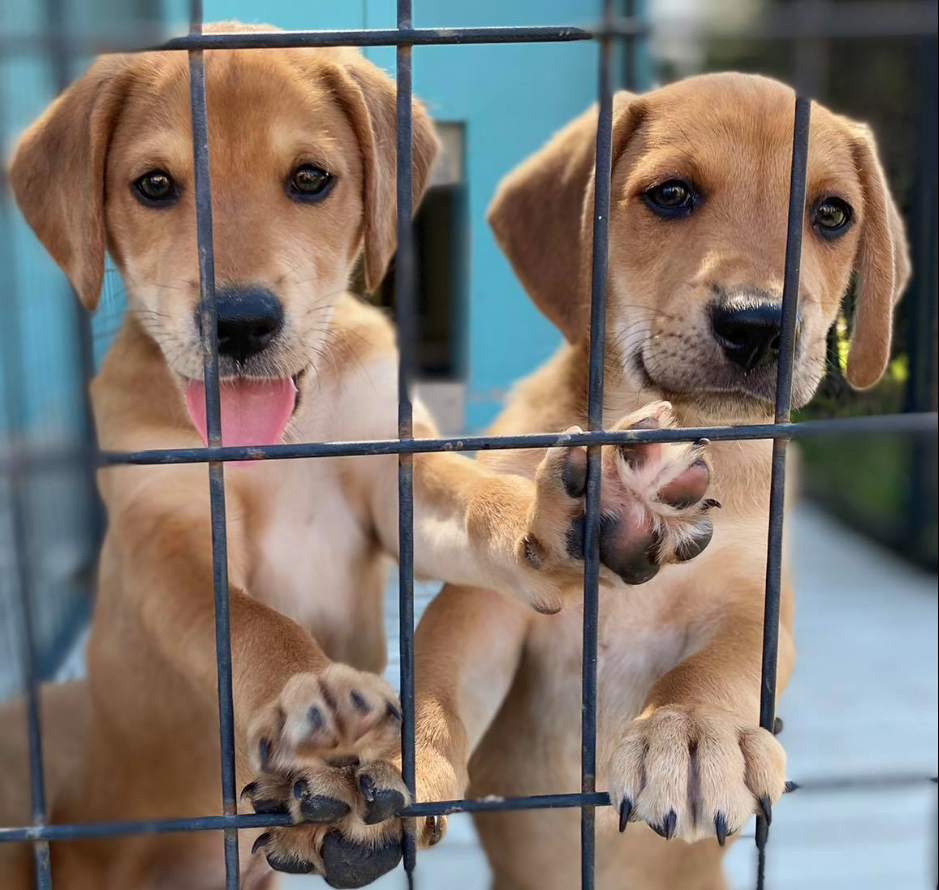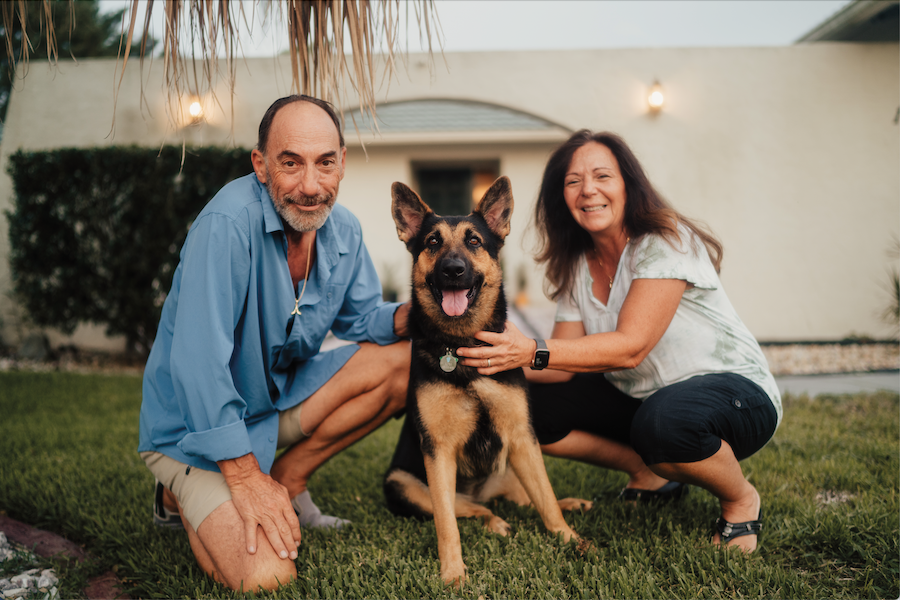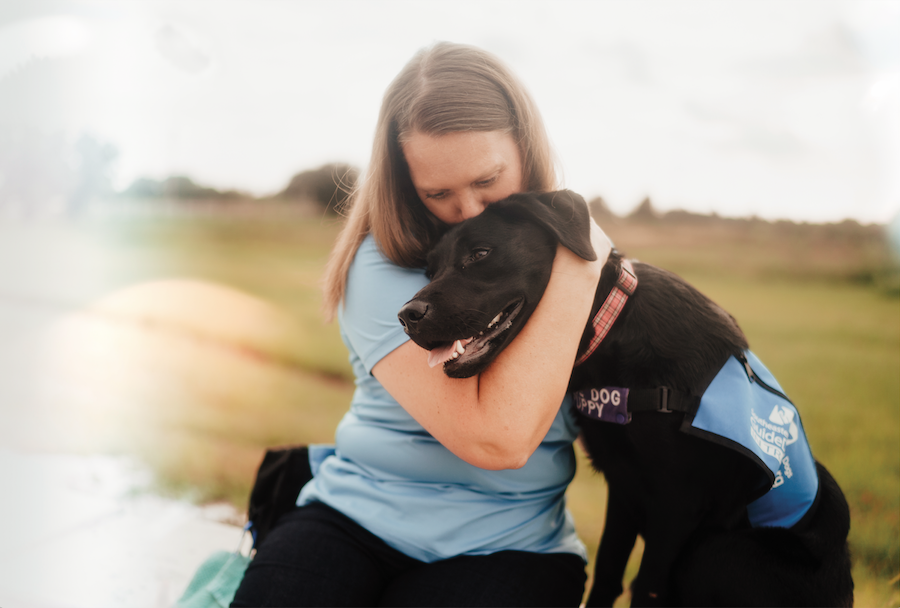Southeastern Guide Dogs provides working dogs (guide dogs, service dogs, therapy dogs and companion dogs) to those who need them most. “These animals give people their freedom and independence back,” says Muffy Lavens , the organization’s media relations manager. This metamorphic process begins the moment a client decides that a working dog will allow them to live their life to its fullest. Once their application is approved, they meet with staff to discuss their ideal dog. The personality and abilities of the dog and owner are considered to foster that perfect match. Clients are then invited to Palmetto for training, both on and off campus, so their dogs can learn cues by their side in real-life settings before heading home. “When you see a dog and client meet for the very first time on match day, it’s magical. The dog knows they are here for that person and a bond forms instantly,” she says. “It reinforces why working animals are so important. The more we place skilled dogs with deserving people nationwide, the more society becomes aware of their purpose. It’s a learning process for everyone.” Southeastern Guide Dogs also provides campus experiences like Beyond the Dark that allow people a glimpse into what it’s like to be visually impaired or a veteran with PTSD.
4210 77th St. E, Palmetto, 941-729-5665, guidedogs.org, seguidedogs.

Nate’s Honor Animal Rescue
Started in 2008 as a foster-based organization, Nate’s Honor Animal Rescue has gone from finding homes for 60 to 2,000 animals annually; many of whom have been discarded or neglected. “The animals who come through our shelter are lucky because the people in our community can give them great homes,” says Dari Oglesby, who started volunteering 11 years ago with her daughter. She is now Executive Director and her daughter is in veterinary school - a testament to how Nate’s Honor and places like it can profoundly change the lives of animals and humans alike. Every underage animal, pregnant pet, or shy shelterer goes into a foster home while waiting to be adopted by their forever family. “We have fosters who have saved hundreds of lives by opening their homes,” says Dari. For people who travel, work, or can’t afford a pet but love animals, fostering is the perfect process. Before these animals even come in for adoption, Honor strives to find them the right homes. “Everything is about the animals, if someone wants to adopt an animal that isn’t a good fit we work with them, we redirect them and help them find their perfect pet,” she says. Everyone at Honor is there for one reason: to save the animals. And rescuing them is 7 days a week, 365 days a year. “There are hard days but when you see an animal who’s been waiting go out that door, it’s all worth it.” It’s no secret that those who love animals have big hearts and the number of people in our community that help shelters like Nate’s Honor Animal Rescue is inspiring.
8437 Cooper Creek Blvd., Bradenton, 941-747-4900, nateshonoranimalrescue.org, @nateshonoranimalrescue.

The Humane Society of Sarasota County has been caring for and placing animals in their forever homes since 1952. Originally, they could only house six cats and 48 dogs but, since expanding and declaring themselves a no-kill shelter, they have as many as 250 animals onsite any given day. Caring community members often find and bring in underaged puppies or kittens who aren’t able to be adopted until they’ve been spayed or neutered and are 12 weeks old (that’s where the foster program comes in). “We want these animals in home environments where they can receive the care they need to become someone’s new best friend,” says Executive Director Anna Gonce. After 20 years in animal welfare, Gonce, like many of us, cannot say no to kittens (who are the most at risk in traditional animal service shelters). Since starting in October, she herself has fostered a dozen litters, all of which have found wonderful homes. “Pets serve an important role in our lives. They’re a form of unconditional love, a best friend, a therapy animal, a playmate,” she says. “When a person and an animal choose each other, that’s when the magic happens.” And The Humane Society wants to be a part of making it happen. The organization has built a new facility that will allow the team to care for 900 more animals each year (there is a grand opening later this month). “This new facility is a beautiful place for our animals, but it’s not just that,” she says. “It represents our renewed commitment to the animals of Sarasota.”
2331 15th St., Sarasota, 941-955-4131, hssc.org, @humanesocietysrq.
Humane Society of Manatee County
With a second chance adoption program and veterinary clinic that served 13,500 animals last year, their Executive Director, Rick Yocum, has been saving animals - and people - since 2012. The average length of stay for an adult animal coming in from another shelter, as a surrender, or a stray is less than 40 days. “It’s all about being able to provide the best care for our animals, we’re the Humane Society and we have to act like it,” says Rick. The Humane Society is in the business of matchmaking and its programs do just that. They match animals with adopters and help them learn about the pets they’re raising as a part of their families. It’s a very personal process. They encourage potential adopters to bring animals home for a 4 day, 3 night sleepover. If it’s not a good fit, they can bring that animal back guilt-free and wait for a better match and if it is, an adoption is underway. “People often walk through our door expecting to leave with a pet and that’s not always the best way. You have to use patience in finding the right animal.” Patience also applies when people take an animal home, they have to give it time to get used to its new environment. They offer a senior for seniors program as well as an animal behaviorist to keep animals in homes and out of shelters. When they transfer animals, they do so locally. “There’s a connection between people’s health and having an animal companion,” says Rick. “It lowers blood pressure and gives people who suffer from mental illness a reason to get up in the morning, go for a walk, and to talk to other people.” Animals are truly our saving grace.
2515 14th St. W., Bradenton, 941-747-8808, humanemanatee.org, @humanemanatee.









